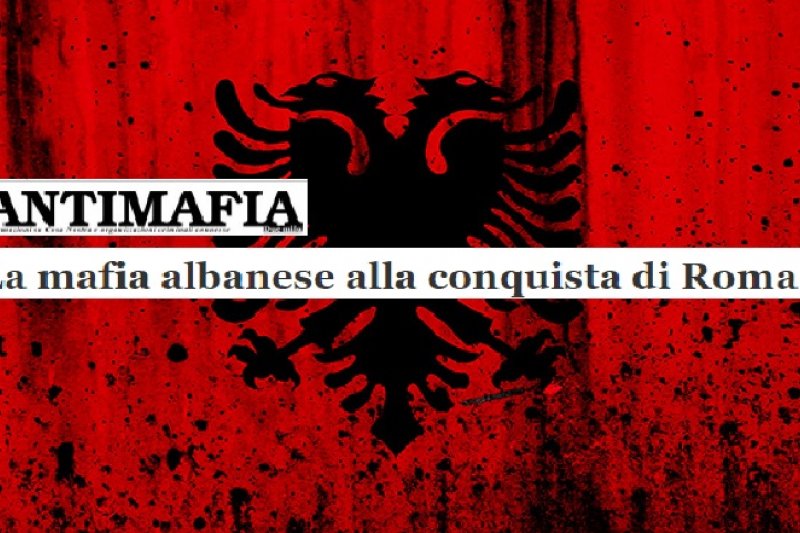Italian Expert: Rome Conquered by Albanian Mafia
The assassination attempt on a 38-year-old Albanian man on the beach of Torvaianica on the outskirts of Rome continues to be in the spotlight of the Italian media. Selvadi Shehaj was shot on Sunday with 2 bullets on the beach by a still unidentified person. He died Tuesday night in hospital. Shehaj had just been released under house arrest after serving 2 and a half years in prison for drug trafficking (5 kg of marijuana) and hence all investigations have focused on this lead as the file has been taken over by the anti-mafia of Rome. In a long analysis of the Italian expert and lawyer Vincenzo Musacchio said that the Albanian mafia clans can now not be underestimated after they have taken over the criminal activities in the Italian capital.
"The beach shootings that took place on Sunday, September 20, for those who study the phenomenon of the mafia, have a clear meaning:" criminal leadership in the Eternal City (Rome) is passing to the Albanian clans. " Criminal style is part of classic and fanatical executions. The killer went to the man who had just come out from the sea, shot him in the back, gave him the final blow calmly and then left the beach with a motorcycle waiting for him. The murder happened not by chance in front of a crowd. The signal is clear: "Now we are the bosses and whoever makes a mistake, dies and they let everyone see how!" - writes the Italian expert.
"Anyone who has doubts should know that Rome is now a mafia territory controlled mainly by the Albanian mafia. It is no longer a territory where Albanians had to ask permission before killing. Albanians use the old methods and initially mark their territory with weapons and violence. Now Rome really risks to be dominated by this new mafia,†says the Italian expert who predicts a new season of violence due to the reaction of Italian clans that will not accept the new hegemony of Albanians.
The Italian lawyer says that large mafia groups such as Ndrangheta, Camorra and Cosa Nostra had left the administration of Rome to the smaller clans. Recently there was movement in the latter creating a gap and the only ones who survived are the Albanians.
"The Albanian mafia has become very powerful due to the production and trafficking of drugs throughout Europe. After years of presence and alliances in the territory of Rome, their power has strengthened considerably. "Orders for such executions come directly from Tirana, from where the great squares of Rome are managed, shipped and controlled," said Musacchio, noting that southern mafia clans, Calabrians and Sicilians did not clash with the Albanians, but made pacts with them.
"Now we have to ask, 'Will these pacts still continue?' Rome is now actually the land of the Albanian mafia. Indeed, of Albanian mafias mixed with Italian ones. Let us not forget that the criminogenic abilities of this mafia are impressive, as they manage to combine "traditional" characters (rigid internal discipline, closure to third parties, impenetrability, credibility and high intimidation potential) with "modern" elements ( transnationality, economic growth and close contacts with politics).
Their economic and military power comes almost entirely from drug trafficking. According to DIA, Albanian organized crime remains one of the most active, dangerous and branched foreign organizations in Italy (DIA Report, 2018) beyond the numerous and important police operations (almost all anti-drugs) completed in 2018 and in 2019 with arrests and seizures.
Today, unfortunately, what I wrote over 3 years ago comes true, when I stressed the danger of the Albanian mafia and said that in Rome they were not just a transient phenomenon. "In recent days we have come to realize, at our expense, that they play a central role in Roman organized crime chess," said Vincenzo Musacchio, a lawyer, professor of criminal law and associate professor at the Rutgers Institute for Anti-Corruption Studies (RIACS) in Newark (USA), researcher at the High School of Strategic Studies on Organized Crime at the Royal Institute of Services in London.













